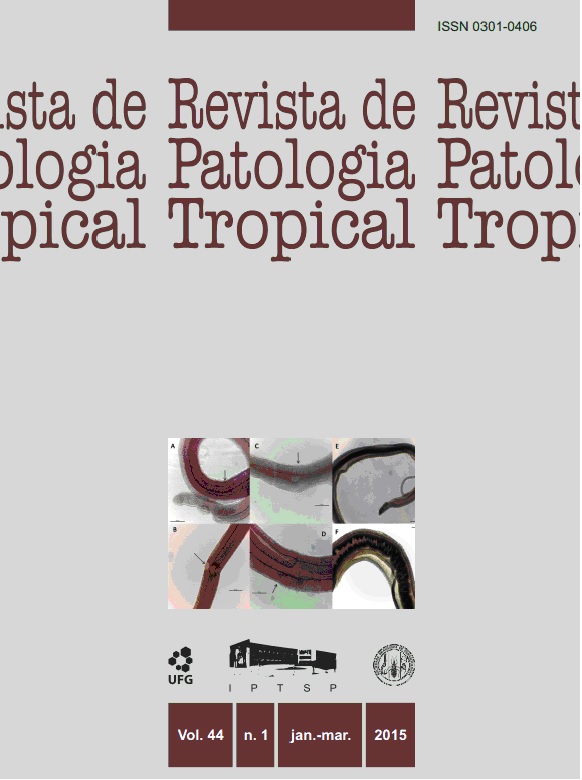POTENCIAIS ALTERNATIVAS TERAPÊUTICAS EM ESTUDO PARA A TOXOPLASMOSE CONGÊNITA: UMA REVISÃO BIBLIOGRÁFICA
DOI:
https://doi.org/10.5216/rpt.v44i1.34798Palavras-chave:
Toxoplasma gondii, toxoplasmose congenital, tratamento alternativo.Resumo
A toxoplasmose, infecção ocasionada pelo protozoário Toxoplasma gondii, constitui um sérioproblema de saúde pública, podendo ser fatal em indivíduos imunocomprometidos ou em infecçõescongênitas. Na toxoplasmose congênita, a doença é resultante da transferência de parasitos parao feto por via transplacentária ou durante o parto, em virtude da infecção primária da mãe, oupor reagudização. As manifestações clínicas para o neonato são diversas, com consequênciaspotencialmente fatais ou debilitantes que podem atingir principalmente o sistema nervosocentral e/ou gerar comprometimento ocular. Dependendo da fase gestacional, o tratamento atualda toxoplasmose congênita limita-se à utilização de espiramicina ou, ainda, em infecção fetalconfirmada, à combinação de sulfadiazina e pirimetamina associadas ao ácido folínico. Entretanto,estes esquemas terapêuticos podem apresentar efeitos tóxicos ao embrião/feto. Diante disso,pesquisas têm analisado terapêuticas alternativas para esta infecção. Foram analisados os seguintescompostos: artemisinina, atovaquona, azitromicina e diclazuril. Observa-se que artemisinina eatovaquona podem apresentar efeitos teratogênicos dose-dependentes. Já os fármacos azitromicina ediclazuril têm apresentado resultados promissores quando utilizados em modelos murinos ou culturade células, entretanto sua eficácia ainda não foi totalmente comprovada em humanos. Os compostosaqui citados, embora estejam inseridos em estudos ainda experimentais e clínicos, adicionam dadose novas perspectivas para o tratamento desta infecção.Downloads
Downloads
Publicado
Como Citar
Edição
Seção
Licença
The manuscript submission must be accompanied by a letter signed by all authors stating their full name and email address, confirming that the manuscript or part of it has not been published or is under consideration for publication elsewhere, and agreeing to transfer copyright in all media and formats for Journal of Tropical Pathology.

